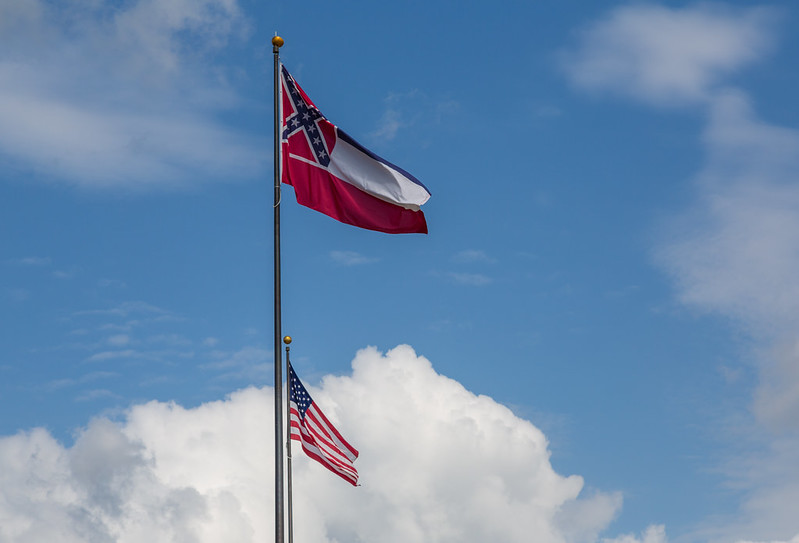
The Freedom From Religion Foundation commends Mississippi lawmakers for finally taking action to remove the racist Confederate Battle Flag from the state flag. Mississippi’s flag was indefensible when it was created in 1894 — an unconscionable affront and threat to Black Americans.
Voters will eventually choose the new flag design. Unfortunately, state lawmakers have decided that every possible design must include the divisive religious phrase, “In God We Trust.” This decision was rammed through the state Legislature on a Sunday afternoon, allowing virtually no opportunity for public input.
In case there was any doubt which god lawmakers intend the phrase to refer to, Mississippi House Speaker Philip Gunn reportedly celebrated the unusual Sunday passage as occurring “on the Lord’s day.” In addition to excluding all nonbelievers in Mississippi, Gunn has made it clear that only those who share his personal version of Christian belief will be represented by the state flag.
“In God We Trust” is a phrase that is intimately entwined with slavery and segregation, making it a particularly ironic choice to replace the Confederate Battle Flag. The phrase was added to coins toward the end of the Civil War at the urging of a preacher raging at the “ignominy of heathens,” and was belatedly adopted as the national motto and added to paper currency in the 1950s — the height of segregation and the Red Scare.
Mississippi typically ranks as one of the most religious states, but even so, about 17 percent of Mississippians are not Christians, according to a 2014 Pew study. In other words, Mississippi is once again choosing to exclude citizens from its flag.
Instead of this divisive religious phrase, Mississippians might consider the original national motto for the overwhelming part of U.S. history, E Pluribus Unum (“From many [come] one”). E Pluribus Unum would send the message that Mississippi has truly learned from its past mistakes, replacing exclusion with inclusion and seeking to heal and grow as a state.

